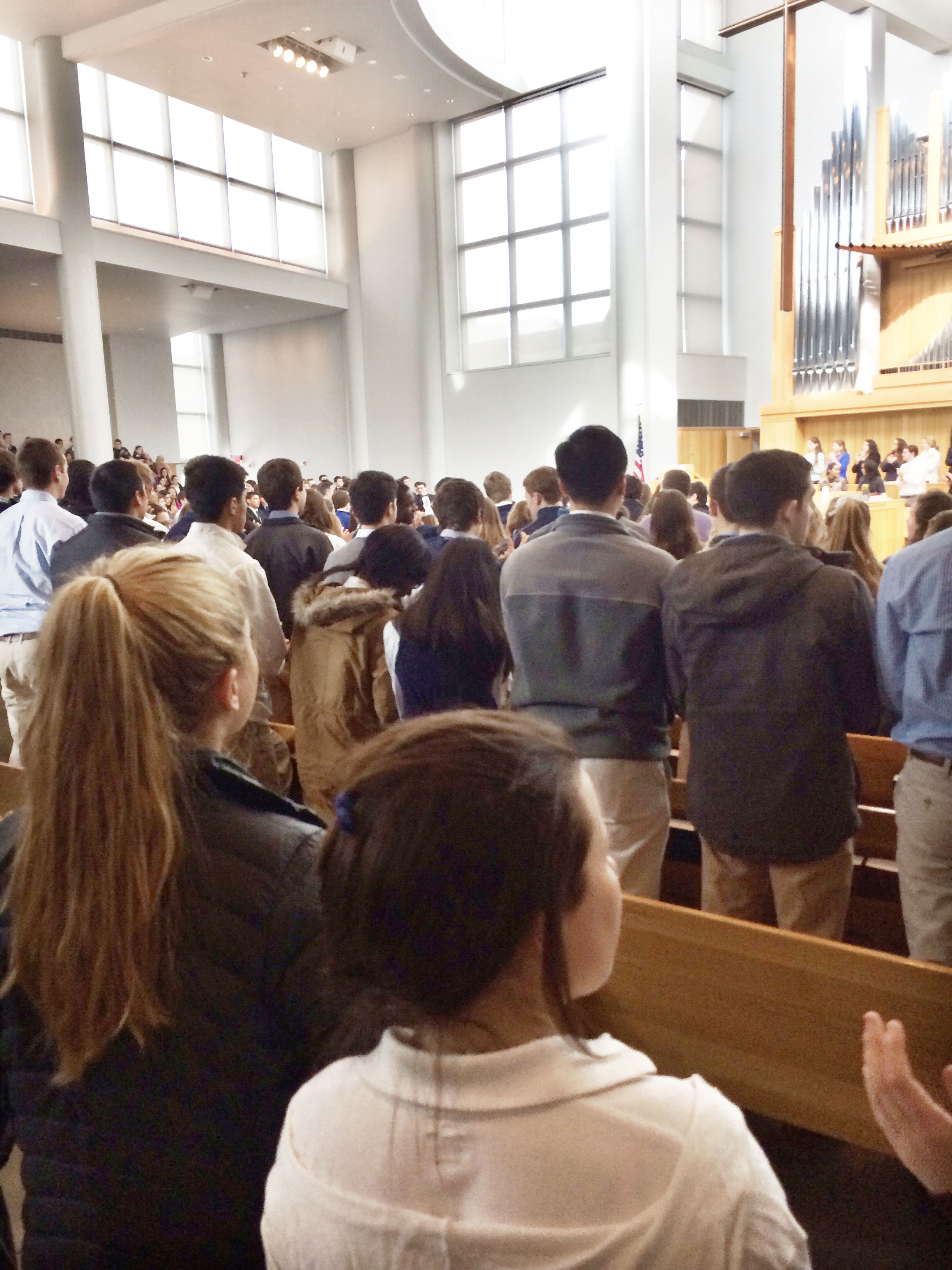In a senior class that has been through thick and thin, it is no surprise that there has been an overwhelming amount of senior addresses this year in chapel. By giving standing ovations to the majority of speeches is truly commendable. However, this showing of support is misguided. Members of the student body, faculty, and Vestry alike have noticed that an overwhelming majority of the speeches this year have been followed by a standing ovation. Unfortunately, in doing so the standing ovation has lost its significance.
There has been a standing ovation for nearly every senior speech this year. It has gotten to the point where the student body is standing for their friends rather than the quality of the speech and delivery. Jack Keffer ’14, Co-Senior Warden of the Vestry, noted that, “Everyone appreciates the time and courage it takes to put together a speech and deliver in front of the Upper School.” However, this courage in itself is not a sufficient reason to stand. In no way should it be disrespectful to sit and clap.

Photo courtesy of Leigh Adelizzi ’15
We have run into the domino effect this year: one person or a group of friends stand, then the rest of the school is on its feet. In these cases, it would be safe to say that there would not have been a standing ovation without the catalyst of these groups of people. Maria Burke ’14 stated, “For example, if a speech is mediocre, but the best friend or friends of the speaker decided to stand, everyone ends up standing out of obligation. A standing ovation is supposed to be a very special and rare thing.”
There is definitely fear amongst the students that the standing ovation is beginning to lose its meaning. Carolyn Bell ’16 agreed, “At this point in chapel, there are so many standing ovations that it says more when people don’t stand rather than when they do.” Burke agreed, “[The standing ovation] seems to be losing its power.”
A standing ovation can be a very special moment in chapel. Jay Kelly ’14 remarked, “Standing ovations are awesome to be a part of when they are genuine.” Keffer personally referred back to the speech of Alex Bilotti ’12 as an example of when we should stand. Keffer claimed Bilotti’s speech had all the elements, stating, “It was perfectly crafted and delivered. There was a personal struggle that she overcame. The story of how she battled cancer and still leads the life she does is mind blowing. I felt that if I didn’t stand, I wouldn’t be giving the speech the respect it deserved.”
Before, it was rare to see a standing ovation in chapel. Now it is commonplace. Dr. Christopher Row, Assistant Head of the Vestry, posed the question, “If you stand for everything, what do you do when you have the next Alex Bilotti speech? Do you stand on the pew? Do you jump up and down? Do you set off a flare gun? What is it that you do to distinguish it from just the ordinary standing ovation that everyone is getting?”
Episcopal must adjust what it stands for. Row cautiously added, “We don’t mean to discourage people from genuinely expressing what they are feeling, but maybe recasting the idea of a standing ovation in a different light.” Keffer specified further, saying, “The speech will have moved me so much or was so exhilarating that I feel the need to stand.” Row added, “You shouldn’t have to think about doing it, you should just discover that you are on your feet.”
We should begin to model the idea of some standing and some sitting. There should be no obligation to stand just because the individual next to you does. And it should in no way be disrespectful for you to remain seated; it is perfectly plausible that a speech affected him or her in a different way than you.
We have seen cases in the past years when only the Seniors would stand for some speeches—when the speech touched them in a different way than the rest of the school. Keffer proposed another idea, saying, “A different way of showing support is coming up to the speaker after the service to congratulate [him or her] on a job well done….you don’t stand to show your support, if you really want to show your support, you come and give a personal ‘great speech.'”
Standing ovations are a wonderful way to show respect, when this respect is warranted. Though the intention behind our recent excess of standing ovations is benign, the act itself is ultimately detrimental to the significance of such ovations and our chapel program as a whole.